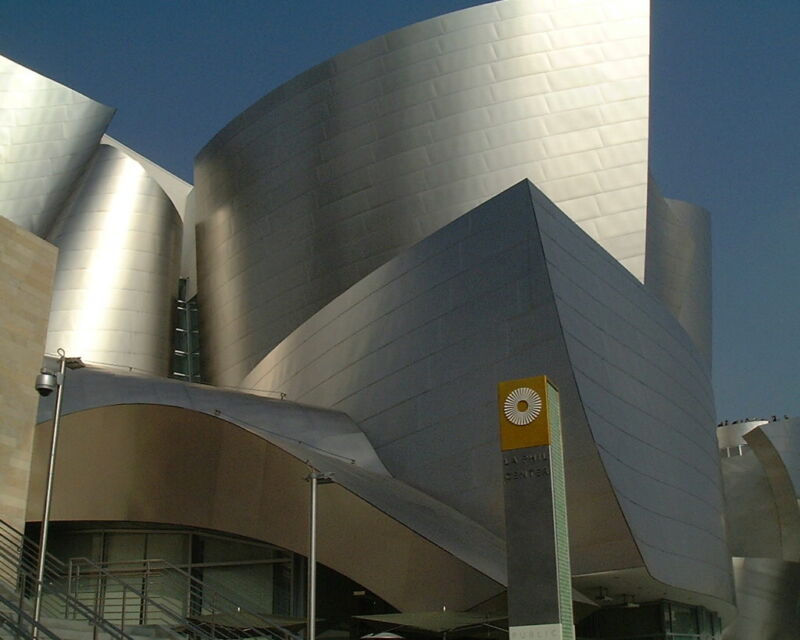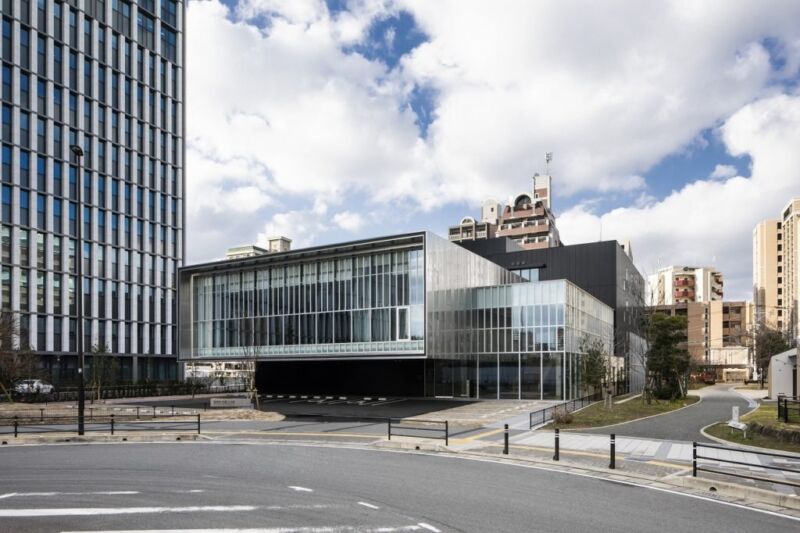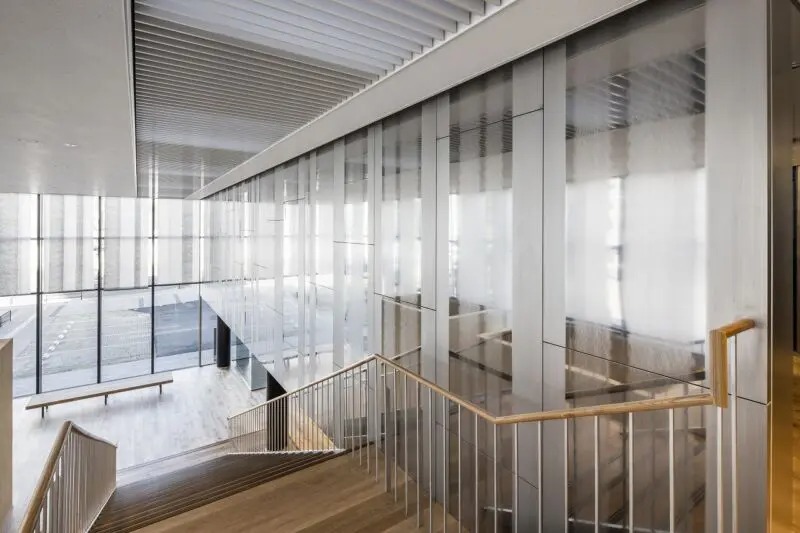Stainless steel is widely used for building exterior walls and interior materials because of its resistance to corrosion and surface deterioration both indoors and outdoors.
Stainless steel is one of the few metals that can be used for exterior walls and interior materials in a variety of forms to express metal design.
In addition to creating a metal-like atmosphere through single design polishing, a combination of polishing processes can create an unprecedented expression of space.
Therefore, we would like to introduce some examples of 2D stainless steel design polishing processes that TOYO STAINLESS GRINDING KOGYO has performed so far.
Please take a look at this article to learn more about 2D design combinations.
contents
Standard design expression of stainless steel polishing

Stainless steel has the ability to resist corrosion and surface deterioration both indoors and outdoors.
Hence, it is often used for building exterior walls, interior materials, kitchens, and water fixtures such as flush fittings.
Its appearance is generally created by applying a polished finish of basically the same design. The hairline or #400 (buffed) finish is the most common finish.
[Changing the image with a little ingenuity] Hairline finishing
Expression achieved by combining designs
While a single design polishing process can create a cohesive and metal-like atmosphere, it is too weak for expressing an intention or concept.
However, it is possible to express an intention or concept by combining polishing processes in a design manner.
<Example 1 Facade Design Concept>
Disney Concert Hall (USA)

This is the work of American master Frank Gehry.
The concept of the stainless steel covering of this wall is a facade of “a sailboat’s sails shimmering in the waves, changing their expression in the morning and evening sun.
Functionally, the finish must diffuse and diffuse light.
【Captures and diffuses light.】
This is an example of a finish that satisfies functionality and meets the concept of the challenge by combining various design polishing processes, all of which are six or more layers in length.
The design polishing process is invisible from a distance, with a mysterious shimmering running design.
<Case 2: Combination of craftsmanship and machine operation>
Art Grinding “Flame
Work by Zycc Co.

This is an example of a combined expression of the art grinding technique that was common in the 1990s with modern machine operation techniques.
Usually, the grinding process using a grinder tends to result in a single drawing, which, depending on the appearance, may not have a very beautiful look.
For the interior walls of this building (walls that are shown from the inside to the outside), lighting up and expressing the shimmer of flames are important concepts.
Therefore, instead of using the conventional art grinding method, we used machine operation to create a three-layer design base on the back of the wall, forming a regular design that could not be expressed by hand. The flames are drawn on this base using art grinding, which is a craftsman’s technique.
By doing so, it is possible to dynamically express a wild dance of flickering and wriggling flames.

Thus, a beautiful and bewitching flame wall surface was created through combined design polishing with machine finishing and craftsmanship.
<Case 3: Expression of Fukuoka’s traditions on an entire wall>
Fukuoka Prefecture Lawyers Hall “Homage to Hakata Dedication Pattern”
Work by architect Mr. Koichi Furumori

This is an example of a project that took on a variety of challenges.
The first is the general framework of a textural design for the entire wall surface, which consists of a single panel with three different polished panel designs.
Each panel has three different polished designs, and a total of ten different panel designs are arranged to match the overall design of the wall surface.
In particular, the design is not only seen from a distance, but also when approaching, a design that pays homage to the unique pattern of the Hakata Offering Pattern appears.
Furthermore, by changing the type of stainless steel used for the exterior and interior walls, the color of the material is changed, giving the exterior walls a powerful appearance and the interior walls a gentle, elegant impression.

And all are finished unevenly, creating a natural shimmer without regularity, an illusory and powerful design that adorns the Lawyers’ Hall.
<Example 4: Japanese-style interior and stainless steel counter>
High-end Tenpura Tenju-sama Counter
Works by Zoom Corporation

The client, who is working on the interior of a high-end tempura restaurant, has chosen stainless steel for the originally all-vermilion countertop.
They chose our newly commercialized “Dezain Stainless Steel Umegae”.
The countertop is now very nice, matching with the beautiful Japanese interior of the back.
The combination of the Japanese interior and the stainless steel is a brilliant design.

The sensitivity of the owner of the store, who specified the newly commercialized designing stainless steel ume branch, is also excellent.
After this case, the designing stainless steel ume branch began to spread in Japan.
Finally
Design expression in metals can be expressed in various forms.
Among them, stainless steel is one of the few metal types that can be expressed in its bare, polished state.
Instead of covering the metal like painting, plating, or printing, the natural shine and texture of the material can be felt by utilizing the scraped metal skin.
We believe that not only using single items, but also including a little ingenuity in combination and design polishing process will create an unprecedented space.
Please feel free to contact us for trial production.
